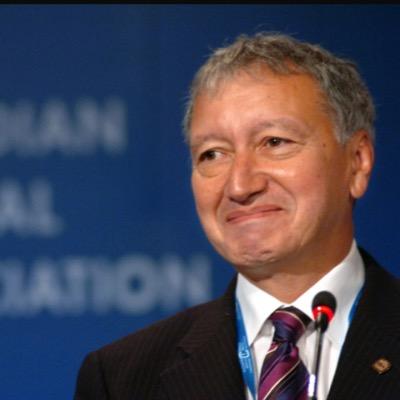
Dr. Brian Day
@DrBrianDay 
- Past President Canadian Medical Association
- Past President Arthroscopy Association of North America
- Honourary Associate Professor University of British Columbia
- 2014 Doctors of BC Don Rix Leadership Award


 Brian Day's letter to the Editor
Brian Day's letter to the Editor
Published on February 9, 1999 - Volume 35 Issue 06
LETTERS TO THE EDITOR: Two-tier care is a freedom we are denied
Dr. Russell MacDonald's letter of Jan. 12 ("Sirs, medicine is not suited to private enterprise," Medical Post) regurgitates much of the unsubstantiated drivel that was commonly heard during the Hillary Clinton campaign of a few years ago.
Both he and the Medical Post's editor, Pat Rich, in his response, ignore the fact that Canadians have begun to reject the status quo. Just weeks after my letter of Nov. 10 was published, there was yet another poll reported (National Post, Dec. 5) in which 96% felt that substantial repairs or a complete rebuilding of Canada¼s health system was necessary. Sixty-three per cent felt they should be able to pay for "upgraded treatment."
Dr. MacDonald is out of touch with both the standard of Canadian health-care delivery and the views and desires of Canadians. He has also been fooled into thinking that Canadians' health status, as judged by infant mortality, longevity etc., has something to do with the funding of, and access to, non-emergency surgical and medical treatment. His support of an egalitarian approach to health care, based on his own view of health, would require equality of income, nutrition and housing. This is called "Marxism" and so far no country has been able to make it work.
The other common mistake he makes, typical of those whose experience is limited to North America, is to presume that the U.S. system is the only alternative to the Canadian. Having worked not only in Canada and the U.S., but also in two European countries, I can assure him that superior - and cheaper - methods of health-care delivery are available in both Europe and in many countries around the world.
As I stated in my letter, except for Albania, Cuba and North Korea, "two-tiered" health care is the standard in every country in the world. With the Canada Health Act, our country has tried to emulate the systems in those three countries.
Although many do not realize it to be so, over 70% of Canadians (including unionized employees and all government workers) actually enjoy the privilege of private "two-tier" insurance, which covers many medically necessary services that are excluded from medicare. Braces for fractured spines and arthritic knees, artificial limbs, physiotherapy, dental care and, most significantly, essential drugs are covered only for those who have such private insurance.
In which law of nature was it determined that medicare should cover treatment for an ingrown toenail that might stop you playing hockey or soccer, but not for a tooth infection that might result in a cerebral abscess? Why is it ethical to charge a patient with visual problems due to a lens that is slightly crooked, but not for one that is slightly opaque?
The evidence that state-run monopolies are inefficient is overwhelming. Last summer, a patient of mine was sent to a private American hospital for elective surgery at a cost of $20,000 (government-funded), while operating rooms in Vancouver closed at 3 p.m. The procedure could have been done locally at a cost of $2,000. Despite the fact that they have unlimited insurance, foreign visitors with ski injuries are billed $540 for repair of a knee injury that costs the Canadian taxpayer $6,000.
Patients on a five-week waiting list for biopsy of a possible breast or prostate cancer observe other patients being admitted each week, ahead of them, for suction treatment of fat thighs or cosmetic face-lift surgery. These private patients, in public medicare-funded facilities, are charged $290 for procedures costing the taxpayer 20 to 30 times that amount. The hospital closes for "reduced activity days" every five weeks, while patients receiving thousands of dollars worth of wage-loss benefits remain disabled and wait 18 months for an half-hour operation that would have them back at work in six weeks.
These examples do not characterize "one of the best systems in the world" - if it were any good, surely someone would have copied it by now.
Medicare in Canada is not threatened by allowing an injured golfer, skier, professional athlete or worker to spend a few dollars a month for private health insurance that will allow early treatment. The real threat is the status quo, which forces them to join the same queue as patients in need of urgent treatment for serious or life-threatening diseases, thus prolonging the wait for all.
Notwithstanding the views of Dr. MacDonald, or some of the Harvard academics he seems to worship, there is nothing immoral about spending money on our own health.
The bottom line is that we (supposedly) live in a democracy, and we have not mandated that our government enforce legislation that denies us rights that are available to non-residents in our own country.
The present scenario is reminiscent of the "special shops" for visitors and tourists in the former Eastern Bloc countries. The analogy is both valid and alarming. -- Dr. Brian Day, Vancouver.